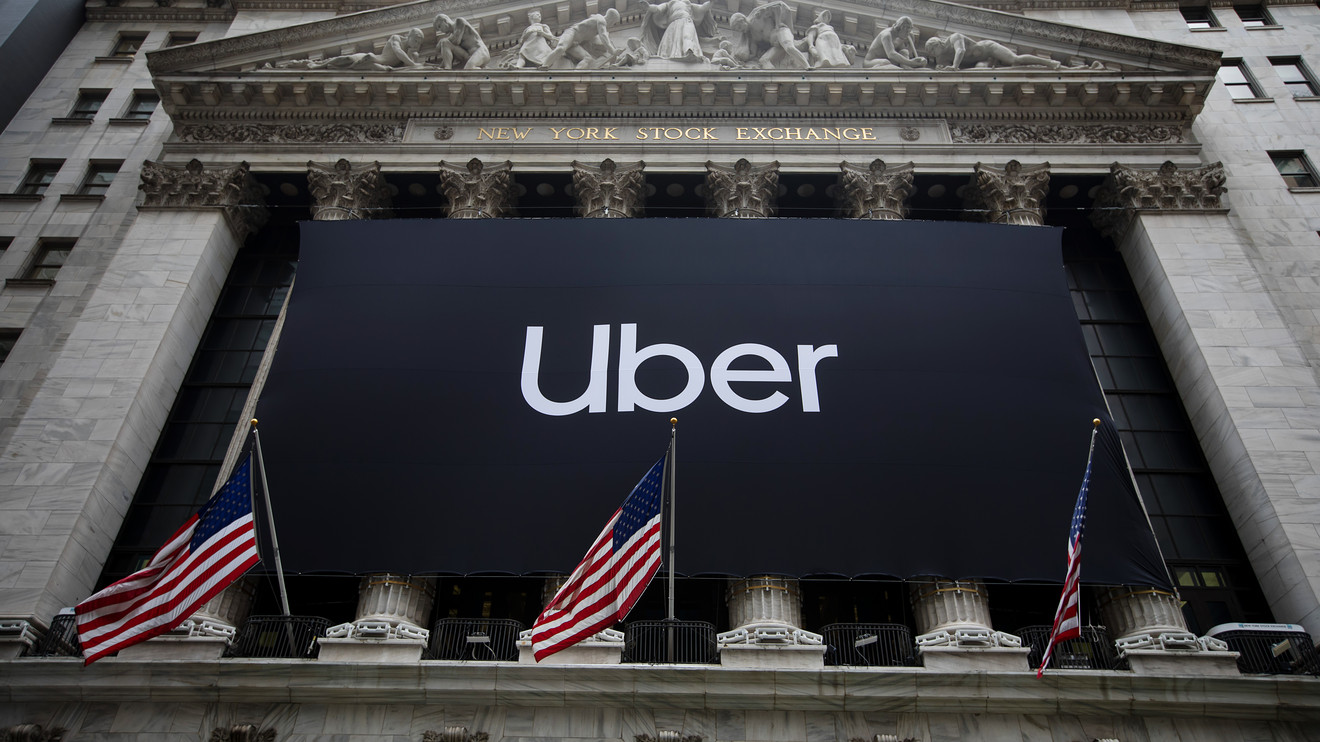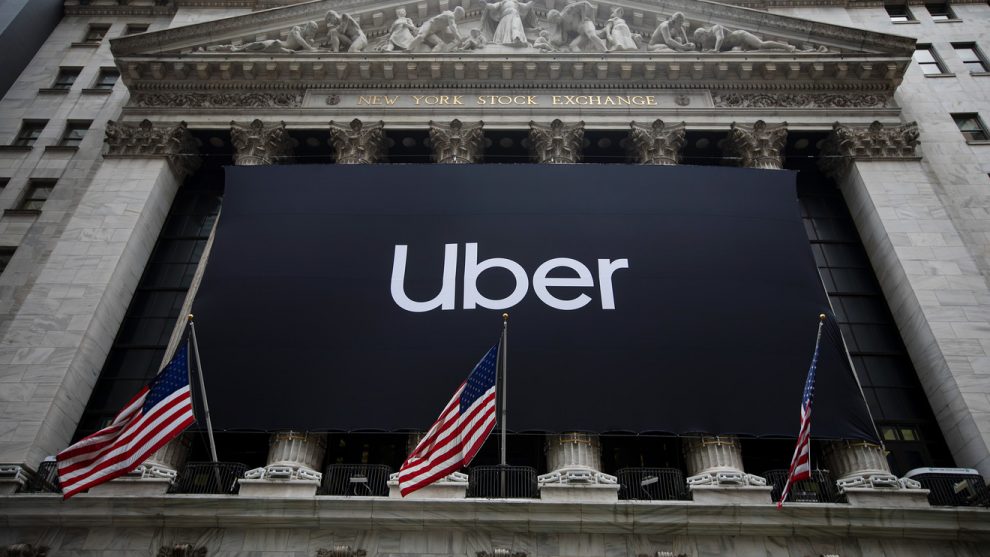
Uber Technologies Inc. shares shot higher in after-hours trading Thursday after executives indicated a price war with Lyft Inc. that was keeping ride-hailing fares low was settling down.
Uber UBER, -0.35% reported first-quarter losses of $1.01 billion, or $2.26 a share, on revenue of $3.1 billion. Shares bounced around between slight gains and losses in after-hours trading until executives provided what passes for a forecast from Uber in a conference call and said that the pricing war was easing.
“We’ve more recently seen signs of competition becoming more focused on brand and products versus incentives, which is a trend that has continued into Q2 2019 and we think which is a healthy trend for the business,” Chief Executive Dara Khosrowshahi said on the conference call, just as shares started heading higher.
Lyft LYFT, -2.54% shares also showed after-hours gains around the same time, about 4:45 p.m. Eastern, and were trading almost 3% higher. Khosrowshahi cited Lyft’s earnings conference call specifically when later asked by an analyst about pricing trends in the U.S.
Related: Uber and Lyft IPOs mean the cheap rides are coming to an end
“In the U.S., if you listen to the Lyft conference call, for example, they talked about competing more on brand and I think that competing more on brand and product is, call it a ‘healthier’ mode of competition than just throwing money at a challenge,” the Uber CEO said. “So we have seen that pencil out into the market, so to speak, and we are obviously operating independently. But I say we like what we see on the competitive front in the U.S., which is our largest market.”
Uber issued a very limited forecast, with Chief Financial Officer Nelson Chai saying “core platform adjusted net revenue” — a figure that ignores noncore businesses and strips out any driver incentives — and contribution margins will improve in the second quarter from the first and continue that pattern through the end of the year. The company did not provide a forecast for any traditional metrics.
Uber disclosed ahead of the IPO that it expected to lose at least $1 billion and up to $1.11 billion in the first quarter, on net revenue of $3.04 billion to $3.1 billion. In the year-ago quarter, Uber reported massive earnings of $3.75 billion on revenue of $2.58 billion, though that outsize profit was linked to the sale of some of its international operations, with a stated operational loss of about half a billion dollars in the year-ago quarter.
“Our Q1 2019 results were at or near the high end of the ranges we shared last month in our IPO prospectus,” Chai said in the earnings announcement. “Our investments remain focused on global platform expansion and long-term product and technology differentiation, but we will not hesitate to invest to defend our market position globally.”
Not enough analysts projected Uber’s first-quarter earnings to form a solid consensus for this report. Analysts for banks that underwrite an initial public offering tend to wait 25 days from the offering before initiating coverage of a stock, and most of Wall Street helped out on Uber’s IPO, which listed an astounding 29 banks as underwriters. Expect a wave of Uber initiations next week with analysts’ thoughts on this earnings report.
See also: 5 things you need to know about the biggest U.S. IPO since Facebook
Uber reported bookings — which represents the total amount of money spent on the Uber platform, instead of just the part that Uber takes and is counted as revenue — of $14.65 billion, up from $10.9 billion a year ago. Uber said in its pre-IPO disclosure that it expected gross bookings of $14.44 billion to $14.66 billion, with about 78% of that total attributed to its ride-sharing platform and most of the rest coming from the Uber Eats food-delivery business.
Uber lived up to its forecast with ride-hailing bookings of $11.45 billion and Uber Eats bookings of $3.07 billion in the first quarter, with the rest credited to the company’s “Other Bets” ventures. Uber Eats bookings more than doubled from a year ago, increasing 108%, while ride-hailing increased about 22%.
Lyft stopped disclosing bookings information in its first earnings report after its earlier IPO, despite providing the information in pre-IPO filings. Chief Financial Officer Brian Roberts said at the time that Lyft “really wanted to try to avoid investor confusion” in not providing the information.
More: Lyft stops providing key data after IPO, then insults investors’ intelligence
The revenue breakdown was roughly similar to bookings. Uber said that about 76.7% of revenue came from ride-hailing, and 17.3% from Uber Eats, with the rest credited to Other Bets and “Vehicle Solutions.”
Uber stock has yet to touch its IPO price of $45 a share in regular trading since the first trading day on May 10. Shares closed Thursday with a 0.4% loss at $39.76, but topped $41 in after-hours action.












